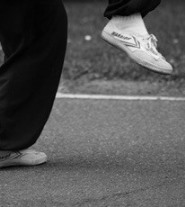

In both Eastern and Western medicine practicing Tai Chi is associated with promoting health, both physically and mentally. Many who have taken up this Chinese art report that it has fixed various health conditions or helped them relax. Hundreds of medical studies have looked into these claims, and many have found evidence that learning tai chi has tangible health benefits. These included back problems, blood pressure, balance, and measurable reductions in stress. According to the Harvard Medical School’s, An Introduction to Tai Chi there are eight active ingredients.
This is the Mind and Body aspect. Practicing Tai Chi Chuan is an exercise in mindful movement requiring focus and concentration which brings about cognitive benefits. A purposeful and engaging activity will keep you in the moment and gives you break from worries.
This refers to the use of mental imagery in Tai Chi practice. Rehearsing in the mind’s eye can help achieve those improvements in posture and movement, giving you more confidence in your physicality. Mental rehearsal is a technique used by top athletes.
Through Tai Chi you learn graceful movements. This involves alignment of your body structure. This will help with a range of problems arising from posture problems and with joint pain. Also, this helps improve balance and mobility which will carry on into everyday activities which explains why Tai Chi is good at reducing trips and falls.
This low intensity exercise will relax mind and body. The use of mindful movement helps you become more aware of your body and how it operates. Through practice you will hold yourself in a more balanced and relaxed way. The interplay between stress and physical health is well understood, stress makes people physically ill so doing something to relax can have knock-effects with our general physical health.
Tai Chi is physical exercise. It will burn calories, use muscle, and stretch limbs. Regular practice will get you physically fitter, especially in the legs. Don’t be fooled by the slow and steady movement. Whilst it is obviously not hardest workout you can have, the intensity and pace make it accessible to people who may not cope with or want a conventional gym workout.
Good breathing is a key component. The way we do it effects both our levels of stress and physical aspects of our health. This can happen through improved posture and co-ordinating breath with movement.
Getting out and being involved in group activity brings benefits in mental well-being. A Tai Chi class can provide opportunity for social interactions and chances to make new friends. Better socially support has been shown to lead to better health outcomes.
Tai Chi can be played out as a ritual. It is a physical practice that incorporates certain philosophical principles. This can be translated into everyday life. For some this can serve the same potentially helpful function as faith and spirituality does.
Many of these ingredients can be understood by appreciating that Tai Chi Chuan is actually a martial art. The fighting aspects are now optional and the art is more often associated with a slow dance like routine of movements. This form, as it is known, encapsulate a mixture of not only martial moves but also the means to develop the necessary physical balance, psychological mindset and the physical skills and fitness required to be an effective martial artist. Whilst it is debateable how well Tai Chi is going to work on the street or against other martial arts, experience has long pointed to secondary benefits for improving health and well-being.
Getting out, taking some exercised, talking to people and finding some way of relaxing is more important than ever. Tai Chi ticks many boxes for anyone looking to improve their lives.
Harvard Medical School. Retrieved June 2025.
See also
Tai Chi as an Exercise for Strength ...
Tai Chi for Arthritis...
Mindfulness and Tai Chi...
